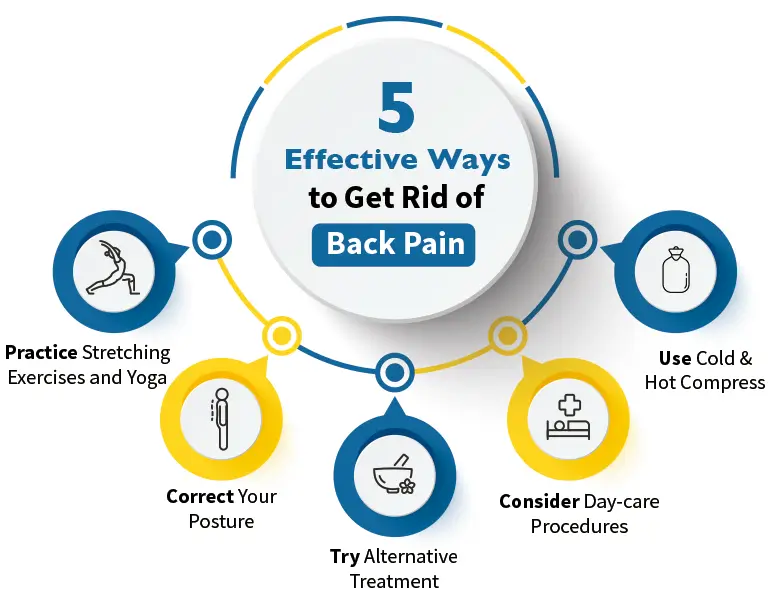
Why is Physiotherapy Not Working For You? Here Are the Top Reasons
- Fri Jun 28

Back pain is a prevalent issue affecting millions of people worldwide, and its impact on daily life can be significant. Whether your back pain is a result of poor posture, muscle strain, or other underlying factors, incorporating lifestyle changes and adopting preventive measures can contribute to relief and long-term well-being. In this blog post, we’ll explore six practical tips to help you address and prevent back pain.
Maintain Proper Posture: One of the primary contributors to back pain is poor posture. Whether sitting at a desk, standing, or lifting objects, maintaining proper posture is crucial. When sitting, ensure your feet are flat on the ground, your back is straight, and your shoulders are relaxed. When standing, distribute your weight evenly on both feet, keeping your knees slightly bent. Proper lifting techniques are essential too – bend at the knees, not at the waist, and lift with your legs rather than your back. By being mindful of your posture, you can significantly reduce the strain on your back muscles and spine.
Incorporate Regular Exercise: Physical activity plays a crucial role in preventing and alleviating back pain. Engage in exercises that strengthen your core muscles, as they provide essential support to your spine. Low-impact activities such as swimming, walking, or yoga can help improve flexibility and promote overall back health. Additionally, focus on exercises that target the back muscles, such as bridges or cat-cow stretches. A consistent exercise routine not only helps alleviate existing back pain but also acts as a preventive measure against future issues.
Invest in Ergonomics: Many people spend a significant portion of their day sitting, whether at a desk or in front of a computer. Investing in ergonomic furniture and accessories can make a substantial difference in reducing back pain. Consider a chair that provides proper lumbar support and encourages good posture. Ensure that your computer screen is at eye level to prevent straining your neck and back. Small adjustments, such as using a supportive cushion or a standing desk, can contribute to a more comfortable and spine-friendly workspace.
Practice Mindful Movement: Mind-body practices, such as yoga and tai chi, can be effective in managing and preventing back pain. These exercises focus on controlled, deliberate movements that enhance flexibility, balance, and overall body awareness. The emphasis on breath control in these practices also promotes relaxation, reducing tension in the back muscles. Regular participation in mindful movement activities can not only alleviate existing back pain but also serve as a preventive measure by fostering a stronger mind-body connection.
Maintain a Healthy Weight: Excess weight, especially around the midsection, can strain the lower back and contribute to back pain. Adopting a healthy diet and maintaining an appropriate weight for your body type can significantly reduce the burden on your spine. A well-balanced diet rich in nutrients helps support overall musculoskeletal health. Combined with regular exercise, weight management becomes an essential component in preventing and alleviating back pain.
Prioritize Quality Sleep: Sleep is a crucial aspect of overall health, and it plays a significant role in managing back pain. Invest in a comfortable mattress and pillows that provide adequate support to your spine and neck. Maintain a consistent sleep schedule, and if possible, sleep on your side with a pillow between your knees to align your spine properly. Quality sleep promotes healing and rejuvenation of the body, contributing to the overall well-being of your back.
Conclusion:
Back pain is a common ailment, but with the right approach, it’s possible to find relief and prevent future issues. By incorporating these six tips into your daily routine – maintaining proper posture, engaging in regular exercise, investing in ergonomics, practicing mindful movement, maintaining a healthy weight, and prioritizing quality sleep – you can take proactive steps towards a healthier, pain-free back. Remember, consistency is key, and consulting with a healthcare professional for personalized advice can further enhance your back health journey.